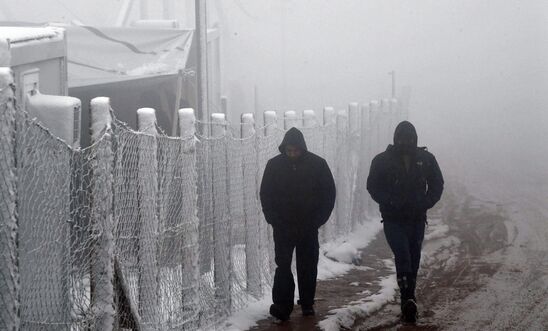
Press releases
Bosnia and Herzegovina: Warning over 2,500 migrants trapped in 'bitterly cold temperatures'

As many as 2,500 people - including 900 residents of a temporary makeshift camp - remain without basic shelter in perilously cold conditions in Bosnia and Herzegovina after the authorities failed to provide adequate accommodation to migrants and people seeking asylum, leading human rights organisations have warned.
In a joint statement, Amnesty International, Jesuit Refugee Service Europe, Médecins du Monde Belgique and Refugee Rights Europe have called for immediate humanitarian support to address the current emergency and provide long-term solutions to meet the needs of people transiting through the country.
Eve Geddie, Director of Amnesty International’s European Institutions Office, said:
“Accommodation is available to house most of the people currently sleeping rough in bitterly cold temperatures in Bosnia and Herzegovina. What is lacking is the political will to make that happen. The authorities at all levels must immediately provide suitable shelter and assistance to those in need.”
Many of those at risk were previously housed in a temporary makeshift camp in Lipa, northwest Bosnia, which was shut down on 23 December. A fire broke out during closure, turning the area into an uninhabitable wasteland. Over the weekend, the authorities installed dozens of heated tents on the ground, but some 400 people remain in makeshift shelters despite heavy snow and extremely cold temperatures.
Outside Lipa, many people - including families with children - continue to seek refuge in parks, abandoned houses and factories, and forests close to the border with Croatia. They are in desperate need of shelter and humanitarian assistance as they face dire winter conditions.
EU assistance
The EU has provided more than €88 million in assistance to Bosnia and Herzegovina to strengthen its migration management capacity over the past three years. Despite this, the country has failed to identify suitable facilities for the accommodation of migrants and people seeking asylum, has failed to assume full responsibility for the management of existing facilities or to provide minimal guaranteed support to those stranded in the country.